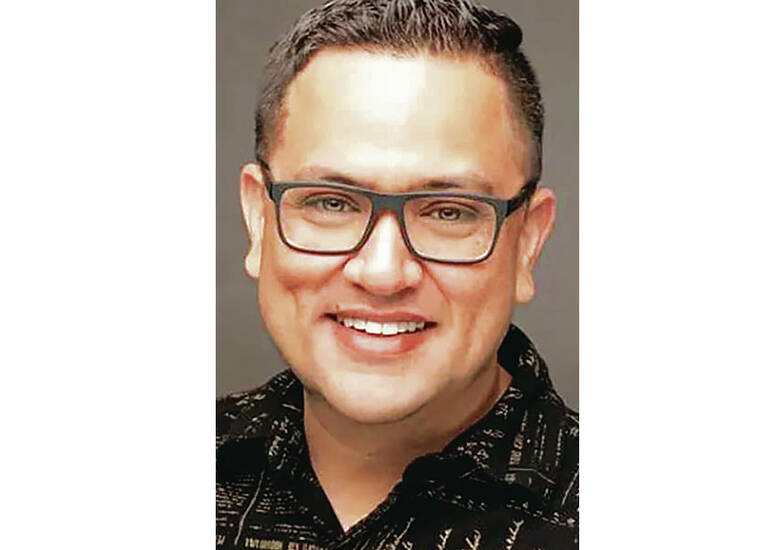Government proposals worry Maui short-term rental owners



MAKAWAO — Finding housing for survivors has emerged as a top priority in the wake of the devastating Maui wildfires, but many fear that proposals coming forth to convert vacation rental units will jeopardize some businesses still struggling to stay afloat after the pandemic and since Lahaina’s destruction.
Sydney Smith, owner of Maliko Estate Coffee, offers farm stays in unique cottages perched atop jungle gorges to subsidize the cost of keeping her Makawao coffee farm running and to support archaeological work on the property’s historic sites, including a stream and waterfall where ancient Hawaiian petroglyphs adorn the basalt walls.
ADVERTISING
Farm stays are an allowable accessory use on agricultural land and Smith said the cottages are licensed vacation homes that are registered with the county and state. She said before she and her husband Maurice bought the 20-acre agricultural parcel it had been used for illicit purposes, including drugs and illegal dumping.
“We turned a garbage dump into a coffee farm,” Smith said. “My husband (Maurice) and I spent five years restoring the ecology of the stream. When we moved the garbage, we found the petroglyphs and contacted archaeologists, who have been working on the site.”
Down the road, her friend and fellow vacation rental owner Eve Hogan also turned a former drug haven into The Sacred Garden, a 10,000-square-foot nursery, peace sanctuary and botanical garden, with a temple and two walking labyrinths. She uses farm home stays to support her nonprofit called the Divine Nature Alliance, which sponsors complimentary entrance fees to the site, which is open every day from at least 9 a.m. to 5 p.m.
“I’ve been seeing fire survivors visit,” Hogan said. “This is a very healing place.”
Both women say they are proud of the improvements that they have made to their properties, which were once the dregs of the neighborhood. They say their farm stays also have allowed them to create a regenerative tourism market that supports Makawao and Haiku businesses.
Over the years they have survived governmental pushback on vacation rentals, which since the growth of hosting sites has had a complicated relationship with some Maui residents.
But they worry proposals from Maui County Mayor Richard Bissen and Gov. Josh Green aimed at compelling vacation rental owners to turn their properties into longer-term housing for Maui wildfire survivors might be their end, and more broadly would essentially equate to another tourist shutdown, which could irreparably harm businesses, especially those that barely survived COVID-19.
“We are considering moving to Mexico,” Smith said. “We are getting older and we can’t do the farm work ourselves. If we have less revenues, we can’t pay our farm workers. It’s unsustainable.”
Hogan said also at risk is The Sacred Garden, which employs seven people. She said The Sacred Garden Retreat also has created jobs for three yard people and two to three cleaners.
“In 2008 when former Maui Mayor Charmaine Tavares was in office and started going after all the vacation rentals and (bed-and-breakfast homes), the mom-and-pop shops withered on the vine,” she said.
Smith added, “I know business owners who lost homes.”
While businesses are at risk again, clearly greater sympathy lies with the thousands of displaced fire survivors. A grassroots organization Lahaina Strong is using fishing rights to camp on Kaanapali Beach to highlight the need for dignified longer-term housing for fire survivors. Unions representing Maui hotel workers, including Unite Here Local 5 and ILWU Local 142, were joined by government officials in a march in West Maui on Dec. 20 to “call for solutions that address both the short-term and long-term needs for housing in Maui including rent control, eviction protection, and the permanent conversion of short-term rentals in residential neighborhoods to long-term rentals.”
FEMA spokesperson Nicole Timon-Shipman told the Honolulu Star-Advertiser in an email Thursday that there are still 6,060 people in the FEMA Non-Congregate Sheltering program, which operates in Maui hotels. Timon-Shipman said so far the FEMA Direct Lease program has provided housing for 59 households and 1,377 eligible households are waiting for placement in the program.
The County of Maui told the Star-Advertiser in an email Thursday that it is “seeking approximately 2,700 rental units for fire survivors, and some of those may come from property classifications other than short-term rentals, such as timeshare or non-owner occupied.”
To get there, Bissen proposed Bill 131, which the Maui County Council approved Dec. 15. It provides an 18-month exemption from real property tax for units leased to people displaced by fires by Feb. 1 with those leased by March 16 earning an exemption for the next fiscal year. Bissen, who said housing Maui’s fire survivors warrants a “shared sacrifice,” also plans to introduce legislation that will increase property taxes for short-term vacation rentals, timeshare units and nonowner -occupied properties valued at over $1 million that do not sign up for the tax break program.
Under the conversion plan, short-term rentals that convert to longer-term rentals could get compensated up to $5,000 a month for a studio and $11,000 per month for a four-bedroom home. However, monthly rates on the popular hosting site VRBO for January currently range from more than $7,000 for a one-bedroom in Kula to more than $30,000 for a two-bedroom at the Westin Nanea.
Green has said if enough conversions do not take place, he could use his emergency powers to implement a Maui short-term rental moratorium as early as mid-January.
“It’s my job to take the hard position if our people aren’t being taken care of,” Green said. “I do want to be blunt … I’m going to drop the hammer. At the end of the day, housing our local people is more important.”
While these emergency-based actions might solve an urgent problem, evaluating these solutions is complicated. On the one hand, thousands of Maui wildfire survivors need housing now and there is a dearth of affordable housing available on Maui or in the pipeline. Also, hotels, which comprise the bulk of Maui’s lodging inventory, are unlikely to see full recovery of tourism revenues and jobs until Maui wildfire survivors are relocated to longer-term housing.
On the other hand, since vacation rentals comprise about a third of Maui’s lodging, a moratorium could lead to fewer visitor arrivals as visitors that prefer staying in vacation rentals might balk at booking hotels instead. The proposals also could reduce Maui’s property tax collections or transient accommodations tax collections.
County officials have said they are still calculating the potential shortfall from tax exemptions.
“The shortfall will depend on how many owners opt in to receive tax exemptions, as well as the types of tax classifications the properties are in,” the county said. “The shortfall will be addressed in the next budget cycle and is at the discretion of the Mayor’s budget and the County Council’s approval of that budget.”
The county said Thursday that it would hold a news conference in a week or so to update housing options for wildfire survivors.







